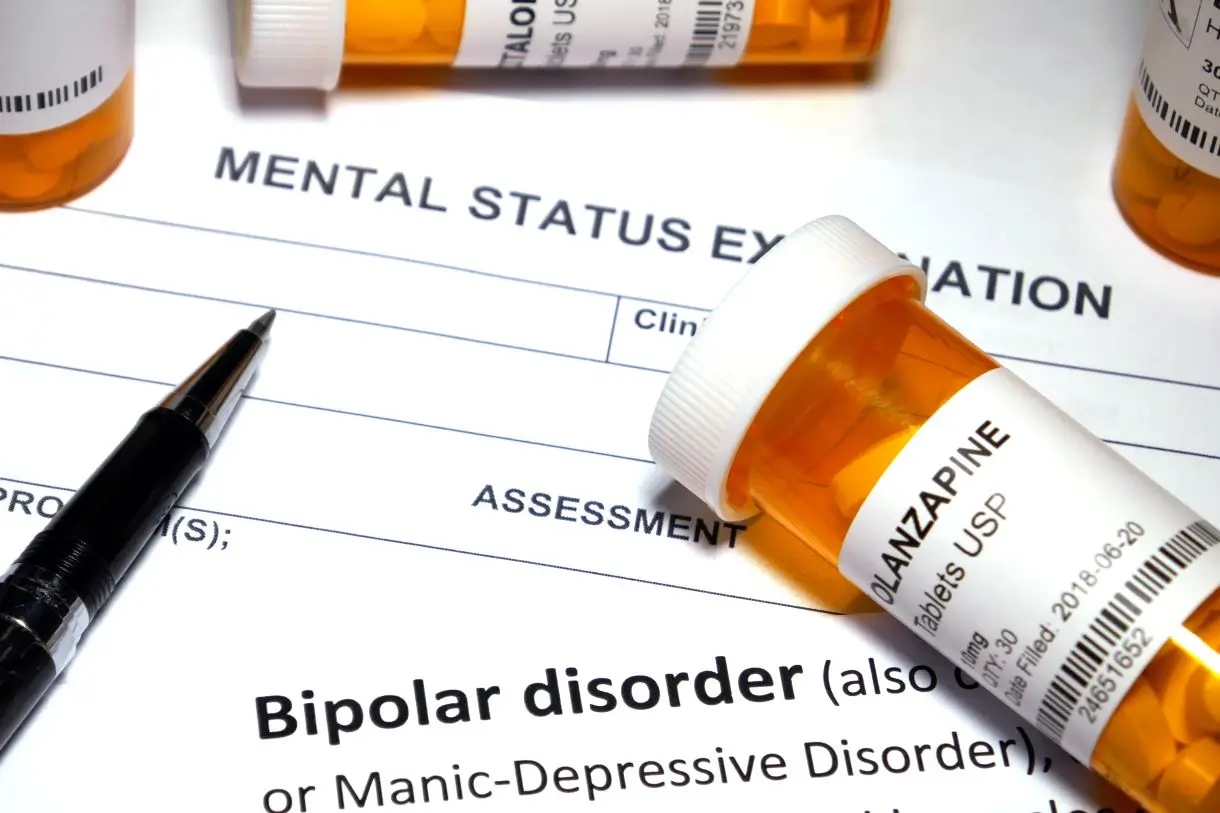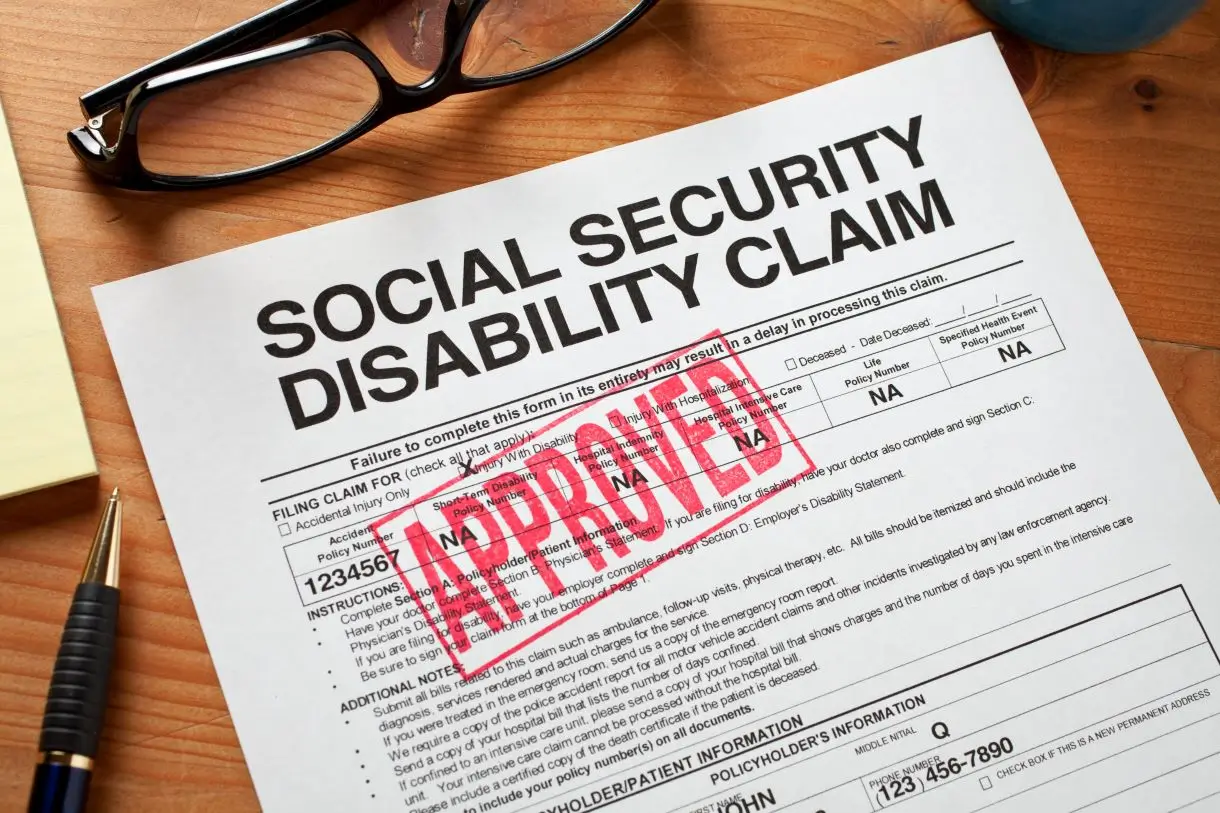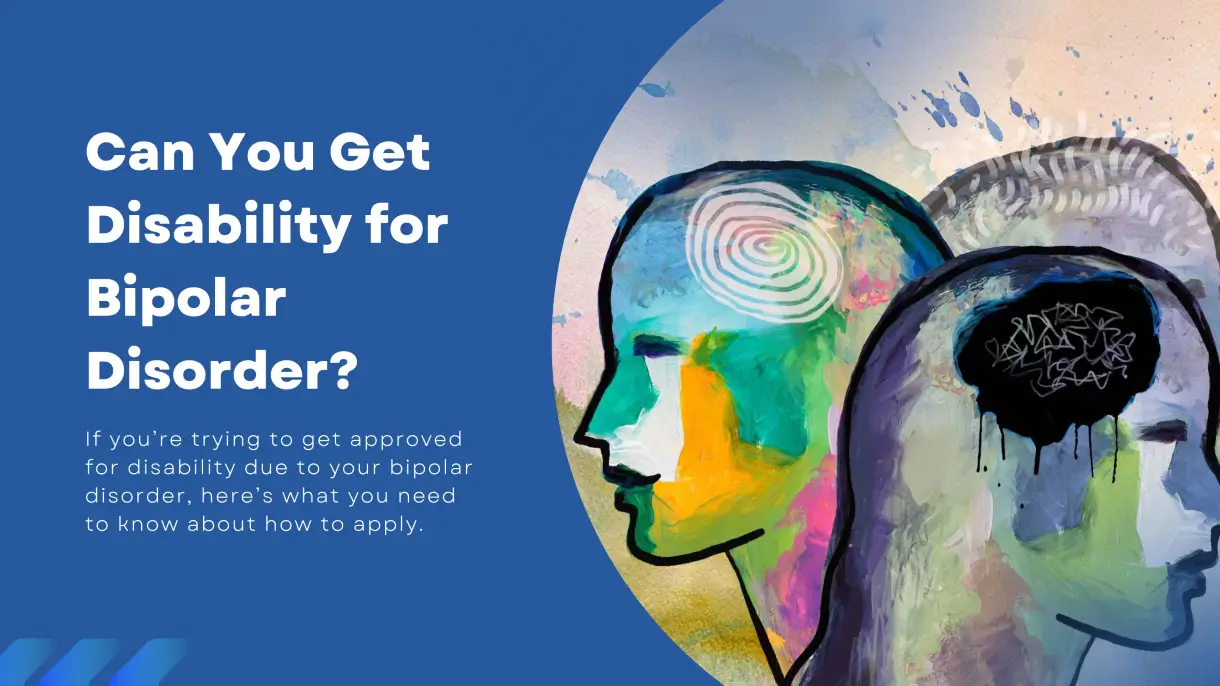Nearly 50 million Americans suffer from mental health conditions, which can range from mild to debilitating. Among them is bipolar disorder, a condition that causes bouts of mania and severe depression. This condition can be challenging to manage, and people with bipolar disorder may find themselves unable to work or earn a living. When that’s the case, you may wonder: can you get disability for bipolar disorder? We’ll explain what the SSA looks for when you file a disability claim for mental health issues such as bipolar disorder below.
Ready to see if you may qualify? Click here to get a FREE, no-obligation consultation before starting your claim.
What is Bipolar Disorder?
Bipolar disorder is a cyclothymic disorder, or a condition that causes cyclical ups and downs in a person’s mood and mental health. Bipolar specifically is a mental health condition that causes individuals who live with it to experience intense highs of mania and hypomania, as well as equally intense lows of depressive episodes.
These high periods of mania are characterized by high energy, euphoria, impulsive decision making, and uncharacteristic irritability. Depressive periods, on the other hand, create prolonged feelings of sadness, hopelessness, and loss of pleasure. These mood swings may happen only rarely, or they may happen several times a year.
There are two types of bipolar disorder: Bipolar disorder I and bipolar disorder II. Bipolar I is diagnosed when an affected individual experiences a manic episode, where they experience extreme increase in energy. Manic episodes last at least a week but can continue for months or even years. Bipolar II disorder, on the other hand, is diagnosed when a person experiences depressive symptoms and hypomanic episodes, which are similar to manic episodes but tend to not have as severe and extreme of symptoms.
Ongoing Medical Treatment for Bipolar Disorder

Symptoms of bipolar disorder can have a far-reaching impact on the quality of life of individuals, but individuals who receive ongoing medical treatment may still effectively manage their symptoms. Medication is the primary method for treating bipolar disorder, but mental health therapy may help to further stabilize the condition and help patients adhere to their treatment plan.
Mood stabilizers are the most commonly prescribed type of medication for bipolar disorder, and they are believed to correct imbalanced brain signaling. Because bipolar disorder affects the brain in an ongoing manner and is considered a lifelong condition, preventative care is the recommended approach to manage the condition and its symptoms.
How Does the SSA Define Disability?
The Social Security Administration (SSA) defines disability as a condition that:
- Prevents you from engaging in Substantial Gainful Activity (SGA), and
- Is expected to result in death or last for a continuous period of 12 months or more.
What is SGA? Substantial Gainful Activity is, essentially, the ability to work and earn a consistent income the SSA considers sufficient for you to earn a living. Since the SSA only offers disability benefits to individuals who are too disabled to support themselves, this restriction prevents anyone who can earn above a certain income limit from qualifying for disability benefits.
The SGA income limit for 2025 is $1,620, or $2,700 for blind individuals.
How the SSA Evaluates Claims for Bipolar Disorder and Other Mental Health Conditions
The good news is, the SSA’s list of approved medical conditions does include a listing for depression-related mental illnesses. This includes bipolar disorder and what it calls “personality and impulse-control disorders.” You can read the claim evaluation criteria listed there, but it’s quite difficult to understand unless you’re a doctor. Regardless of your diagnosis, the part that matters when you apply for disability benefits is always the same. Here’s what the SSA looks for when you file your application for bipolar disorder disability benefits:
- Are you working right now? If yes, the SSA automatically denies your claim.
- If you’re not working, is your bipolar disorder or other mental health issue specifically to blame? (Your honest answer to this question must be “yes.” If so, the SSA will schedule an exam with one of their doctors, who can confirm your bipolar disorder diagnosis.)
- Can you prove you cannot work at all for 12 months because of your bipolar disorder? This is the minimum requirement to qualify for monthly SSD benefits. If their doctor believes you can control your bipolar disorder symptoms with regular medication and/or therapy, they’ll deny your claim.
- Have you seen a doctor during the last 90 days? If you’re not currently under a therapist or medical doctor’s treatment for bipolar disorder, that’s a problem. The SSA will likely deny your claim without recent medical evidence showing you receive regular care for bipolar disorder.
The approval process for disability benefits can take some time and has a low rate of approval. You can improve your odds by working with a disability lawyer.
Success Tips to Improve Your Chances for Disability Approval
Here’s a list of six success tips that can greatly increase your odds of SSD approval for bipolar disorder:
- Keep a symptom diary showing how bipolar disorder affects your daily life. If you struggle to do things like feed/clothe yourself, shower, run errands, cook, or clean, full-time work likely isn’t possible.
- List all drugs your doctor prescribes to treat your bipolar disorder. Write down any other prescriptions you take, including the dosage and frequency.
- Ask your pharmacy to print a list of every prescription you filled during the past year. It should be free, and you’ll want to submit this with your application for Social Security disability benefits.
- Write down all your prescription drug side effects, as well as any from over-the-counter drugs you take regularly. Can you drive a car or operate machinery on your medication? Do you have trouble staying awake, following verbal directions, or getting along with people in the workplace? Side effects like these can make it difficult (or impossible) to work full-time.
- Schedule regular doctor’s appointments to treat your bipolar disorder and BPD. Otherwise, expect the SSA to reject your claim. Regular therapy or doctor’s appointments show you’re doing everything possible to manage your symptoms/conditions. Having this medical documentation on hand will increase your odds of approval.
- List any other health problems you have and how they affect your daily life. That’s because 7 out of every 10 approved SSD claims includes multiple health problems. Imagine you’re placing a bet that requires you to roll a set of dice. Right now, you have two dice in your hand (bipolar disorder and borderline personality disorder). Every additional health issue puts another die in your hand. Be sure to pick up every die available to you before making your roll!
Bipolar Disorder Disability Benefits

There are two types of disability benefits you can receive if you suffer extreme limitation in your ability to work due to bipolar disorder or another mental illness (SSI and SSDI). These two programs, both run by the Social Security Administration (SSA), provide support for disabled individuals across all ages and work histories, depending on the programs utilized.
Social Security Disability Insurance (SSDI)
SSDI benefits allow people to receive disability benefits if they have an established work history. This program is available to people with bipolar disorder or other mental illnesses that allowed them to work in the past but have intensified to the point that they are no longer capable of working.
To apply for SSDI benefits, you must meet the SSA definition of disability, but you also must have a minimum number of “work credits.” Work credits are earned based on the number of years you worked, with one credit equaling three months of continuous work. Four credits can be earned per year, so, for example, if you worked five years, you would have earned 20 credits.
To qualify for Social Security Disability Insurance, applicants generally need 40 work credits, or 10 years of work history, with 20 of those credits having been earned in the past 10 years. However, younger applicants may need fewer work credits to receive disability benefits from SSDI.
SSDI is available exclusively for individuals of working age. To qualify for SSDI, you need to be between 18 and 65 years old, and if you fall outside of that age range, you may need to apply for SSI instead.
Supplemental Security Income (SSI)
Unlike SSDI, which limits applicants based on age and work history, Supplemental Security Income is available at any age and regardless of work history, though it’s generally aimed at individuals over 65. SSI is available to anyone who is:
- Aged 65 or older,
- blind,
- or disabled
Because of this, you can be eligible for social security disability benefits from both SSI and SSDI if your bipolar disorder renders you unable to work, so long as you qualify for both.
Get a Disability Lawyer to Help With Your Claim
If you’re having trouble with your disability benefits claim for bipolar disorder, a disability lawyer can help. They know a lot about the process and can make things easier for you. With their help, you have a better chance of getting the support you need and being approved for disability.
You don’t have to try to figure everything out on your own. A disability lawyer will be there to guide you and make sure you get the help you deserve for your bipolar disorder. They’ll make things simpler for you so you can focus on feeling better. Ask for help from a disability lawyer today!
Ready to see if you may qualify? Click here to get a FREE, no-obligation consultation before starting your claim.
Shay Fleming is the SEO Content Manager at LeadingResponse. A proud graduate of Texas State University, she has been based in Austin since 2016, where she lives with her dog. Shay has contributed extensively to various domains, writing and publishing articles about real estate, investing, disability, and urban living.
